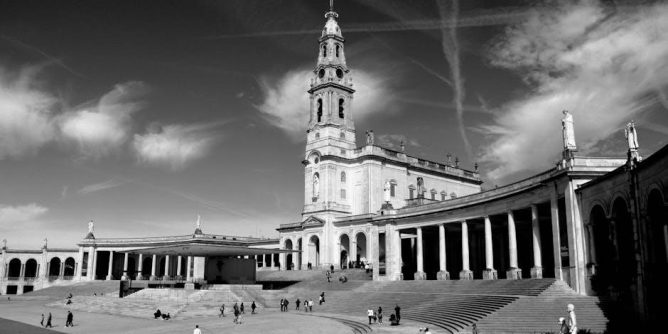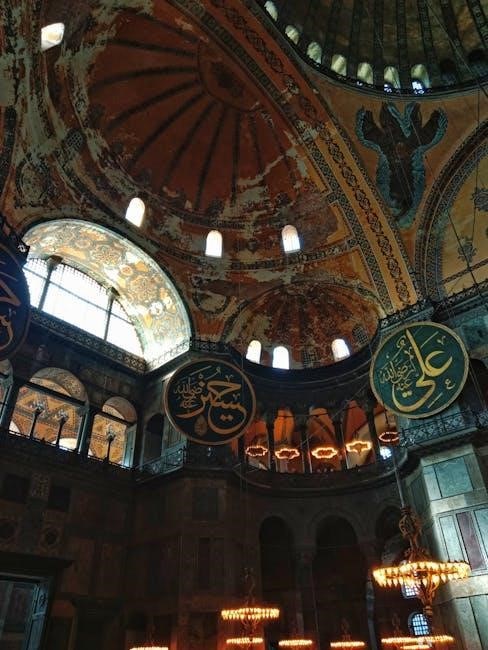
In his compelling book‚ Matthew Kelly reveals the central lie undermining Christian faith: the belief that holiness is unattainable․ This lie‚ he argues‚ has paralyzed believers‚ discouraging spiritual growth and limiting Christianity’s transformative power․ Kelly challenges readers to reclaim holiness as a vibrant‚ achievable reality‚ offering practical steps to overcome this lie and live a life of profound faith and joy․

Overview of the Book and Its Central Theme
Matthew Kelly’s The Biggest Lie in the History of Christianity tackles the pervasive belief that holiness is unattainable for ordinary people․ This lie‚ Kelly argues‚ has crippled Christian faith‚ discouraging personal spiritual growth and societal transformation․ The book explores how modern culture reinforces this falsehood‚ stealing joy and hope from believers․ Kelly offers practical steps to overcome this lie‚ emphasizing the power of “Holy Moments” and the importance of community in achieving holiness․ By challenging this lie‚ Kelly empowers Christians to live vibrant‚ faith-filled lives and regain their influence in a world desperate for change․
The Author‚ Matthew Kelly‚ and His Vision
Matthew Kelly‚ a bestselling author and renowned motivational speaker‚ is dedicated to revitalizing Christian faith․ Born in Australia‚ Kelly has inspired millions globally through his books and seminars․ His vision is to empower Christians to embrace holiness as a achievable reality․ Kelly founded Dynamic Catholic and the Matthew Kelly Foundation‚ focusing on helping individuals discover their life’s mission․ His work emphasizes the transformative power of faith‚ encouraging believers to move beyond complacency and live authentically holy lives․ Kelly’s passion is to reignite vibrancy in Christianity‚ equipping believers to impact the world through humility‚ generosity‚ and joy․

The Biggest Lie: Holiness is Not Possible
The biggest lie is that holiness is unattainable‚ discouraging spiritual growth and diminishing Christianity’s influence․ This deception‚ deemed diabolical‚ has hindered believers from realizing their true potential in faith․
Defining the Lie and Its Impact on Christianity
The lie that “holiness is not possible” is a deceptive belief that has deeply impacted Christianity‚ discouraging spiritual growth and limiting its transformative potential․ This falsehood‚ often self-inflicted by Christians‚ suggests that holiness is only achievable by saints of the past‚ not ordinary people today․ It undermines faith‚ turning believers into passive spectators rather than active participants in their spiritual journey․ By accepting this lie‚ Christianity’s influence wanes‚ as individuals fail to embrace their calling to live holy‚ impactful lives․ This deception neutralizes the Church’s power‚ hindering its ability to effect meaningful change in the world․
How the Lie Has Shaped Christian Thought and Behavior
The lie that “holiness is not possible” has profoundly shaped Christian thought and behavior‚ fostering a mindset of spiritual resignation․ Many believers‚ convinced that holiness is unattainable‚ settle for mediocrity‚ disengaging from the pursuit of a vibrant faith․ This mindset discourages personal spiritual growth‚ reducing Christianity to a superficial practice rather than a transformative way of life․ It also weakens the Church’s collective impact‚ as individuals fail to embrace their potential to influence the world․ The lie has created a culture of complacency‚ where Christians often see themselves as spectators rather than active participants in their faith․

The Origins of the Lie
The lie that “holiness is not possible” has ancient roots‚ reinforced over centuries‚ evolving into a deeply ingrained belief within Christianity․ It is the devil’s greatest triumph‚ convincing believers that holiness is only for saints‚ not for ordinary people‚ thus discouraging spiritual pursuit and limiting Christian influence․
Historical Roots of the Notion That Holiness is Unattainable
The belief that holiness is unattainable has evolved over centuries‚ rooted in misunderstandings of scripture and Church teachings․ Early Christians faced persecution‚ shaping a mindset that holiness was for martyrs and saints‚ not ordinary believers․ The Middle Ages reinforced this with a focus on monastic life‚ creating a divide between the “holy” and the laity․ The Reformation‚ while correcting some abuses‚ often emphasized human sinfulness‚ further cementing the idea that holiness was impossible without divine intervention․ This historical trajectory has led many to accept the lie‚ discouraging spiritual pursuit and limiting Christianity’s transformative potential․
Cultural Influences That Reinforce the Lie
Modern culture perpetuates the lie that holiness is unattainable by promoting secular values that contradict Christian teachings; Society emphasizes self-reliance and relativism‚ discouraging reliance on God․ Media often portrays holiness as outdated or unachievable‚ reducing faith to mere superstition․ The normalization of sin and the pursuit of comfort further alienate individuals from the idea of living a holy life․ These cultural influences create a barrier‚ making holiness seem inaccessible and reinforcing the belief that it is only for the extraordinary few‚ not the everyday Christian․

The Consequences of Believing the Lie
Believing the lie that holiness is unattainable discourages spiritual growth‚ turning Christians into passive spectators․ It neutralizes their impact‚ hindering personal transformation and Christianity’s influence in the world․
How the Lie Discourages Personal Spiritual Growth
The lie that holiness is unattainable fosters disbelief in personal transformation‚ discouraging Christians from pursuing spiritual growth․ It creates a mindset that holy living is only for saints‚ not ordinary people‚ leading to disengagement from faith practices․ This belief stifles hope and joy‚ causing individuals to settle for mediocrity rather than striving for a deeper relationship with God․ By accepting this lie‚ Christians lose the motivation to become the “best version of themselves‚” hindering their ability to live a vibrant‚ faith-filled life and contributing to the broader stagnation of spiritual maturity within the Church․
The Lie’s Role in the Decline of Christianity’s Influence
The lie that holiness is unattainable has significantly weakened Christianity’s influence by discouraging believers from actively living their faith․ If holiness seems impossible‚ many Christians become passive spectators rather than active participants in their spiritual journey․ This mindset diminishes their ability to inspire and transform the world around them․ As a result‚ the Church’s impact on culture and society has waned‚ contributing to a post-Christian era․ Kelly argues that this lie neutralizes Christians‚ preventing them from fulfilling their mission to spread God’s love and create meaningful change‚ thereby allowing secular values to dominate modern life unchecked․

Modern Culture’s Role in Perpetuating the Lie
Modern culture reinforces the lie by promoting secular values that contradict Christian teachings on holiness‚ discouraging the pursuit of a virtuous life and fostering disillusionment with faith․
How Secular Values Contradict Christian Teachings on Holiness
Modern secular values often contradict Christian teachings on holiness by promoting self-reliance over reliance on God‚ moral relativism over absolute truths‚ and hedonism over self-sacrifice․ These values discourage the pursuit of virtue and humility‚ central to Christian holiness․ By embracing worldly success and comfort‚ many Christians are led away from the transformative power of faith․ This cultural shift undermines the belief that holiness is achievable‚ reinforcing the lie that it is unattainable․ Consequently‚ secular ideals create a false narrative that diminishes the role of faith in achieving true happiness and fulfillment․
The Media’s Impact on Christian Perceptions of Holiness

The media often portrays holiness as an unattainable ideal‚ reinforcing the lie that it is not possible for ordinary Christians․ By emphasizing scandals‚ hypocrisy‚ and the failures of religious figures‚ the media discourages believers from striving for holiness․ Additionally‚ secular media frequently promotes worldly values that contradict Christian teachings‚ further distorting perceptions of what it means to live a holy life․ This constant barrage of negative imagery and conflicting values undermines the belief that holiness is achievable‚ leaving many Christians feeling disconnected from their faith’s transformative power․

Practical Steps to Overcome the Lie
Creating holy moments in daily life and fostering a supportive community are essential steps to overcoming the lie․ These actions empower individuals to embrace holiness and transform the world․
Creating Holy Moments in Daily Life
Matthew Kelly emphasizes that holy moments are the foundation of a life lived with purpose and faith․ These moments‚ often found in small‚ everyday choices‚ help individuals become the best version of themselves․ By prioritizing prayer‚ reflection‚ and acts of kindness‚ believers can transform ordinary tasks into extraordinary opportunities for growth․ Kelly argues that each holy moment creates a ripple effect‚ impacting not just the individual but also their families‚ communities‚ and the world․ This practice not only counters the lie that holiness is unattainable but also fosters a deeper connection to God and others‚ leading to lasting change․
The Importance of Community in Achieving Holiness
Matthew Kelly underscores the vital role of community in overcoming the lie that holiness is unattainable․ He argues that spiritual growth thrives in a supportive environment where believers encourage and inspire one another․ Through shared experiences‚ discussions‚ and collective goals‚ communities empower individuals to stay committed to their faith journey․ Kelly emphasizes that isolation hinders holiness‚ while unity amplifies efforts to live a holy life․ By fostering meaningful connections‚ Christians can collectively rise above the lie and embody the transformative power of holiness‚ creating a lasting impact on the world together․

The Power of Holiness in Transforming the World
Holiness holds the profound power to transform individuals and society‚ creating a ripple effect of kindness‚ compassion‚ and justice that reshapes the world for the better․
How Individual Holiness Can Lead to Broader Social Change
Individual holiness ignites a transformative ripple effect‚ influencing families‚ communities‚ and society․ By embracing holiness‚ Christians embody virtues like kindness‚ humility‚ and generosity‚ inspiring others to do the same․ This collective pursuit of holiness fosters a culture of compassion‚ justice‚ and love‚ leading to meaningful social change․ As individuals grow in holiness‚ they become agents of renewal‚ addressing societal challenges and spreading hope․ The power of personal transformation‚ when multiplied‚ creates a movement that can reshape the world‚ proving that holiness is not just a personal pursuit but a force for global impact․
Examples of Holy Lives Making a Difference
Throughout history‚ holy lives have transformed communities and inspired profound change․ Ordinary individuals‚ by embracing holiness‚ have become extraordinary forces for good․ Their acts of kindness‚ generosity‚ and humility ripple through families‚ neighborhoods‚ and societies‚ fostering a culture of compassion and justice․ These examples remind us that holiness is not confined to saints but is achievable by anyone․ By living holy lives‚ Christians inspire others to pursue their own path of holiness‚ creating a collective impact that resonates far beyond individual actions‚ ultimately shaping a better world for future generations․
Christians must reclaim holiness as a living reality‚ recognizing its transformative power for individuals and the world․ This truth is essential for the future of Christianity․

A Call to Action for Christians to Embrace Holiness
Christians are urged to reject the lie that holiness is unattainable and embrace it as a daily pursuit․ By creating holy moments and striving to be “a-better-version-of-themselves‚” believers can transform their lives and the world․ Kelly emphasizes the importance of community and personal accountability in achieving holiness․ He calls for a movement of Christians who are willing to challenge modern culture’s false promises and live with purpose‚ humility‚ and joy․ This collective effort can revitalize faith and restore Christianity’s influence in a world desperate for change․
The Future of Christianity and the Importance of Dispelling the Lie
Dispelling the lie that holiness is impossible is crucial for Christianity’s future․ By reclaiming holiness‚ Christians can reignite their faith and become agents of transformation․ Kelly argues that this shift is essential to counteract the decline of Christianity’s influence in a post-Christian world․ As believers embrace their potential for holiness‚ they can inspire a global movement of love‚ kindness‚ and humility‚ ultimately shaping a brighter future for generations to come․ The time to act is now‚ restoring Christianity’s vibrancy and impact in a world that desperately needs it․